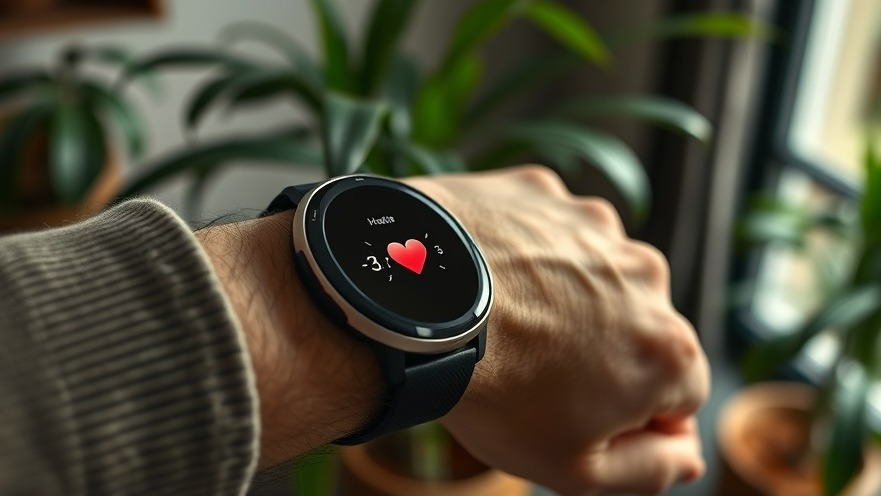
The Growing Popularity of Fitness Tracker Scores
In today's health-conscious world, fitness trackers have transformed how millions approach wellness. With a simple glance at their wrist, many receive daily readiness scores, which aggregate various health metrics into one comprehensive number. This trend is indicative of a larger shift in how technology shapes personal health management.
Understanding Composite Health Scores
Composite health scores, such as the "body battery" or "strain level," aim to distill complex data—from heart rate to sleep quality—into actionable insights. This simplification appeals to users aiming for a quick understanding of their physical state. However, as our recent study shows, the accuracy and reliability of these scores are often inconsistent.
The Science Behind the Scores: What's Included?
Typically, these scores factor in a variety of biometric signals, including:
1. Resting heart rate
2. Heart rate variability
3. Sleep patterns
4. Physical activity levels
5. Breathing rates and more.
Each piece of data represents different physiological aspects, but combining them doesn't guarantee a holistic reflection of an individual’s health.
Sensor Accuracy: A Major Concern
The effectiveness of fitness trackers hinges on their sensors, which estimate bodily functions like sleep stages or daily stress. Sadly, inaccuracies can heavily distort these scores. For instance, minor deviations in heart rate measurement or motion data can accumulate to result in misleading readiness scores, raising a crucial question: how reliable are the final outcomes?
Transparency Is Key: What Do Users Really Know?
Another significant issue is the lack of transparency from device manufacturers regarding how raw data is interpreted to produce the final scores. Many users remain unaware of which metrics hold the most weight or whether their individual characteristics—like age or fitness level—are factored in. This opacity can prevent users from accurately assessing how their scores relate to their actual health status.
Practical Insights for Health Practitioners
For health practitioners, understanding the psychology behind fitness tracker scores is critical. Many patients rely heavily on these numbers and may place undue trust in them. Practitioners should guide discussions that help patients navigate the data objectively, emphasizing that while these scores can offer helpful insights, they should not be the sole basis for health decisions.
Future Predictions: The Role of AI in Wearable Technology
As wearable technology evolves, future iterations may enhance accuracy by integrating artificial intelligence (AI) and machine learning. These technologies can analyze vast sets of data more comprehensively and adapt recommendations to individual fitness levels. However, it’s essential to balance innovation with rigorous scientific evaluation to ensure users receive reliable metrics.
Common Misconceptions About Fitness Tracker Scores
Many users believe that a higher score directly equates to optimal health, but this can lead to misunderstandings. A high readiness score does not invariably signify preparedness for physical activity; rather, it simply reflects specific physiological metrics on a given day. Advancing awareness about these misconceptions can empower patients to take a more nuanced view of their health.
Final Thoughts: Empowering Patients With Knowledge
In a world where data-driven health decisions are increasingly common, the onus is on both fitness device manufacturers and health practitioners to foster an understanding of what these scores truly signify. By emphasizing accurate health data interpretation, practitioners can help patients avoid the pitfalls of over-reliance on potentially flawed information.
As you guide your patients through their health journeys, take the time to discuss these scores and what they represent. Encourage them to combine fitness tracker insights with more comprehensive health evaluations to ensure they are making informed decisions about their well-being.
If you would like to learn more about the latest advancements in health technology and how it affects patient care, we encourage you to stay updated, informing your practice with the best available knowledge.
 Add Row
Add Row  Add
Add 






Write A Comment